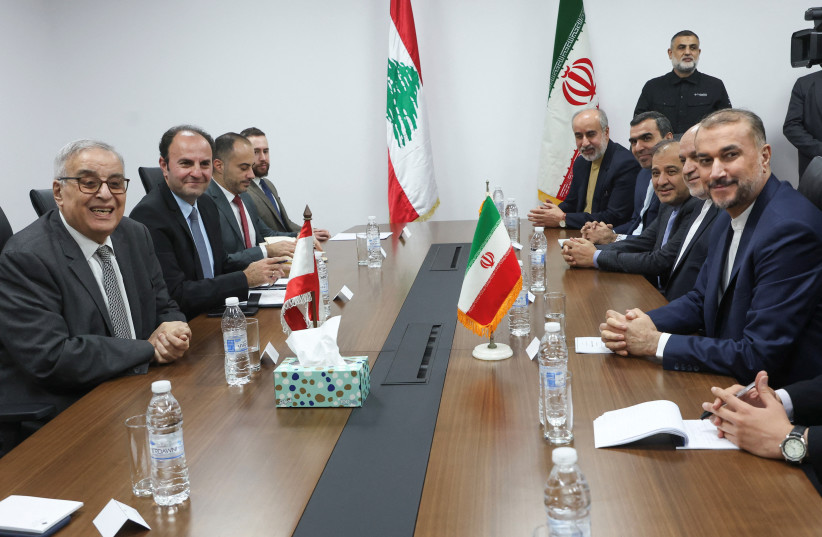Iran’s Foreign Minister Hossein Amir-Abdollahian is on a regional trip, visiting Lebanon and Syria over the weekend. He is also scheduled to arrive in Qatar. In Lebanon, he threatened Israel but has also spoken in general terms about his strategy.
It is clear that Iran, the main backer of Hezbollah and Hamas, is seeking to keep both terrorist groups in play against Israel. Currently, there is rising concern in the region about an Israeli operation in Rafah in Gaza, the last Hamas stronghold.
The first stop on the regional tour was in Lebanon, where he threatened Israel and claimed that any war between Hezbollah and Israel would lead to Israel Prime Minister Benjamin Netanyahu’s “last day.”
Next, he went to Syria. Iran’s regime backs the Syrian regime. Iran has sought to entrench in Syria. It has also used Syria and Iraq to threaten the US. Iran has proxies in Syria that are armed with rockets and drones. An Iranian proxy in Iraq called Kataib Hezbollah killed three US troops in Jordan on January 27.
Discussing 'bilateral' issues in Syria
In Syria, the Iranian diplomat met with key officials and also brought with him a sizable delegation that included the spokesperson of the Ministry of Foreign Affairs, Nasser Kanani, Mehdi Shushtri, Assistant Minister and Director General of West Asia and North Africa, Ali Asghar Khaji, Senior Advisor to the Minister of Foreign Affairs on Special Political Affairs, Hossein Akbari, the Iranian Ambassador to Damascus, and Faisal Al-Maqdad, the Syrian Foreign Minister, was present in this meeting.

He discussed “bilateral” issues. This is an important trip for the Iranian top diplomat who has gone to Qatar to meet with Hamas officials on October 14 and December 20 and met with the Qataris on November 20. He also met Turkish officials on November 1, threatening Israel.
His role has been important since the attack on Israel by Hamas. However, he is not likely involved in the key Iranian decisions in the region, which are likely plotted by others, such as the IRGC Quds Force.
Iranian pro-government Fars News says that Iran’s Foreign Minister Amir Abdollahian is going to visit Qatar after Syria. Al-Jazeera in Doha says that “after his meetings in Lebanon, Amir-Abdollahian is scheduled to visit the Syrian capital Damascus, where Iran also allegedly wields influence over other groups. He is then due to head to Qatar, which has been the main mediator between Israel and Hamas.” Doha has hosted Hamas for a decade.
Iran wants a joint strategy in the region, but Al-Jazeera pointed out that Iran was excluded from a recent meeting of the Arab Foreign Minister in Saudi Arabia over the weekend.
A trip for Iran's agenda
According to Reuters, the “foreign ministers of Qatar, Egypt, Jordan, and the United Arab Emirates, along with the Secretary-General of the Executive Committee of the Palestine Liberation Organisation (PLO) Hussein al-Sheikh,” attended the meeting.
“Interestingly, the exclusion of Iran and inclusion of Qatar is something for us to take note of because the Saudis were saying that this is an Arab problem that requires Arab solutions. Iran, of course, wants to have a say in what transpires once the war is over,” Mehran Kamrava, a political analyst, told Al Jazeera.
The Iranian trip is important due to the looming Rafah operation and continued hostage talks.
Iran has an agenda. Its agenda is to push the US out of the region and isolate and weaken Israel. It wants to use Hezbollah and Hamas to continue to threaten Israel and force Israelis to evacuate the border region.
In addition, Iran uses the Houthis to try to block shipping via the Red Sea. There are reports that Iran, China and Russia will also conduct a naval drill soon.
